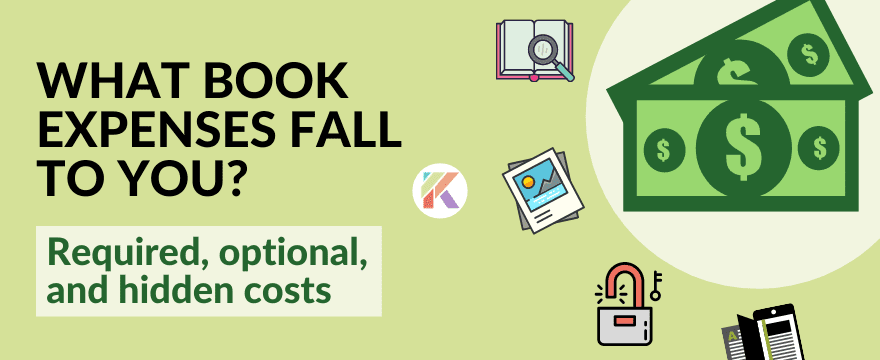Some of your colleagues might have told you that US-based university presses definitely “don’t offer advance contracts.” But you may have also met (or heard of) someone who received one. How can you know which presses offer advance contracts?
In this post, I first outline the critical differences between “advance academic book contracts”–typically offered based on a proposal and sample chapters alone–and regular “academic book contracts,” before answering your questions about advance contracts.
What is an advance book contract for academic books?
Typically, an advance academic book contract (or a pre-publication book contract) is a contract that a press issues to an author based on a proposal alone (with or without two sample chapters). An advance contract commits the press to reviewing the full manuscript and publishing it if it is acceptable. It also commits the author to submitting the full manuscript to that press (and, therefore not any others) when it is ready.
Is an advance contract the same as a normal book contract for academic books?
No. What people typically refer to as an “book contract” differs from an “advance book contract.” Issuing an “book contract” usually means the press commits to publishing the book. An “advance book contract” commits the press to send the full manuscript out to peer review and publish it if it is acceptable.
If you need a “book contract” for tenure, you likely need a full book contract, not an advance contract.
Do all presses offer advance academic book contracts, especially for authors of first books?
No. Here are three common positions presses take:
- A press does offer advance academic book contracts.
- A press will not offer an advance contract but will write a letter of support for/interest in the project. This can be useful in probationary (pre-tenure) dossiers or fellowship applications.
- A press will not offer advance contracts to authors of first books. Rather, they only offer full contracts based on peer-reviewed manuscripts.
How would I know if a press offers advance contracts to authors of first books?
Few press websites indicate whether they offer advance contracts, whether to any authors or to authors of first books specifically. I would recommend you get this information in one of two ways.
First, query colleagues who have recently published with your target press. They will be able to tell you whether they received an advance contract or whether the press only offers full contracts based on positive peer review reports of the complete manuscript.
Second, if and when you meet with editors about your project at conferences, you can ask whether they typically offer advance contracts.
How would a press determine whether to offer an advance book contract ?
Typically, presses offer an advance book contract based on a peer-reviewed proposal (not a full manuscript), whether or not that proposal includes sample chapters. A full academic book contract, by contrast, is usually issued only after a full manuscript has received two or more favorable peer reviews.
What are the benefits and disadvantages of an advance book contract for academic books?
You can think of an advance contract as committing you, the author, to send your full manuscript to the press and committing the press to publish your book if it receives favorable peer reviews and editorial board support.
Because they are awarded to authors whose manuscript is not yet complete (and might, in the end, never be finished!), advance contracts typically mean little to tenure and promotion committees at research-focused institutions. In those committees’ eyes, a full academic book contract (based on peer reviews of the complete manuscript) carries much more weight.
An advance academic book contract, which signals a press’s interest in a project, can carry some weight for fellowship applications to research and write said book.
Additionally, as Karen Kelsky of The Professor Is In suggests, an advance academic book contract might make you a more attractive candidate for tenure-track jobs while still allowing your book to “count” for promotion and tenure at your future institution. You would want to get confirmation in writing, though, and get a trusted mentor’s support in navigating such a situation when you are in the offer negotiation stage.
Keep in mind that signing an advance contract commits you to publishing your book with that press, unless peer reviewers reject the project. Do not sign an advance contract unless you want to commit to that press (and foreclose the opportunity to work with other presses).
Laura Portwood-Stacer also walks you through advance vs. full academic book contracts in The Book Proposal Book and in her comprehensive post on the topic.
Will an advance contract come with compensation?
For authors of humanities and social science monographs, sometimes. Typically it will be a small amount, some of which might offset expenses like indexing.


